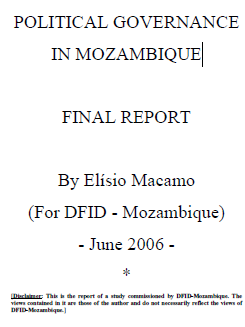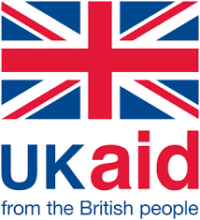Resource information
Mozambique is one of the countries in Africa receiving significant amounts of development assistance. It owes this privileged position to many factors. First of all, after a protracted civil war which lasted from the late seventies to the early nineties, Mozambique’s then Marxist oriented government and the “right-wing” Renamo rebels signed a peace agreement which has since held. In fact, not only were the warring parties able to effectively establish a peaceful order, but they also saw the country through three general elections (19994, 1999, 2004) and two local elections in 33 municipalities (1998, 2003). While the fairness of these elections has been the subject of controversy, many observers attest Mozambique a measure of progress in democratic consolidation. Secondly, since the mid-eighties, Mozambique has embarked on a programme of economic and political reforms with support from the International Monetary Fund, the World Bank and several Western donors. These reforms have consisted in the liberalization of the economy and the discussion and approval of a new multi-party constitution, which actually came before the peace settlement. Thirdly, the country has shown a consistent degree of commitment to international development goals, a most recent example of which is its integration of poverty alleviation goals into the policy decision making process. While this may be largely due to the debt relief context within which poverty alleviation became a major issue, Mozambique has been remarkable in holding on to it. In April this year, PARPA II (Mozambique’s PRSP) was approved. Overall, Mozambique has been exemplary in its commitment to development.


